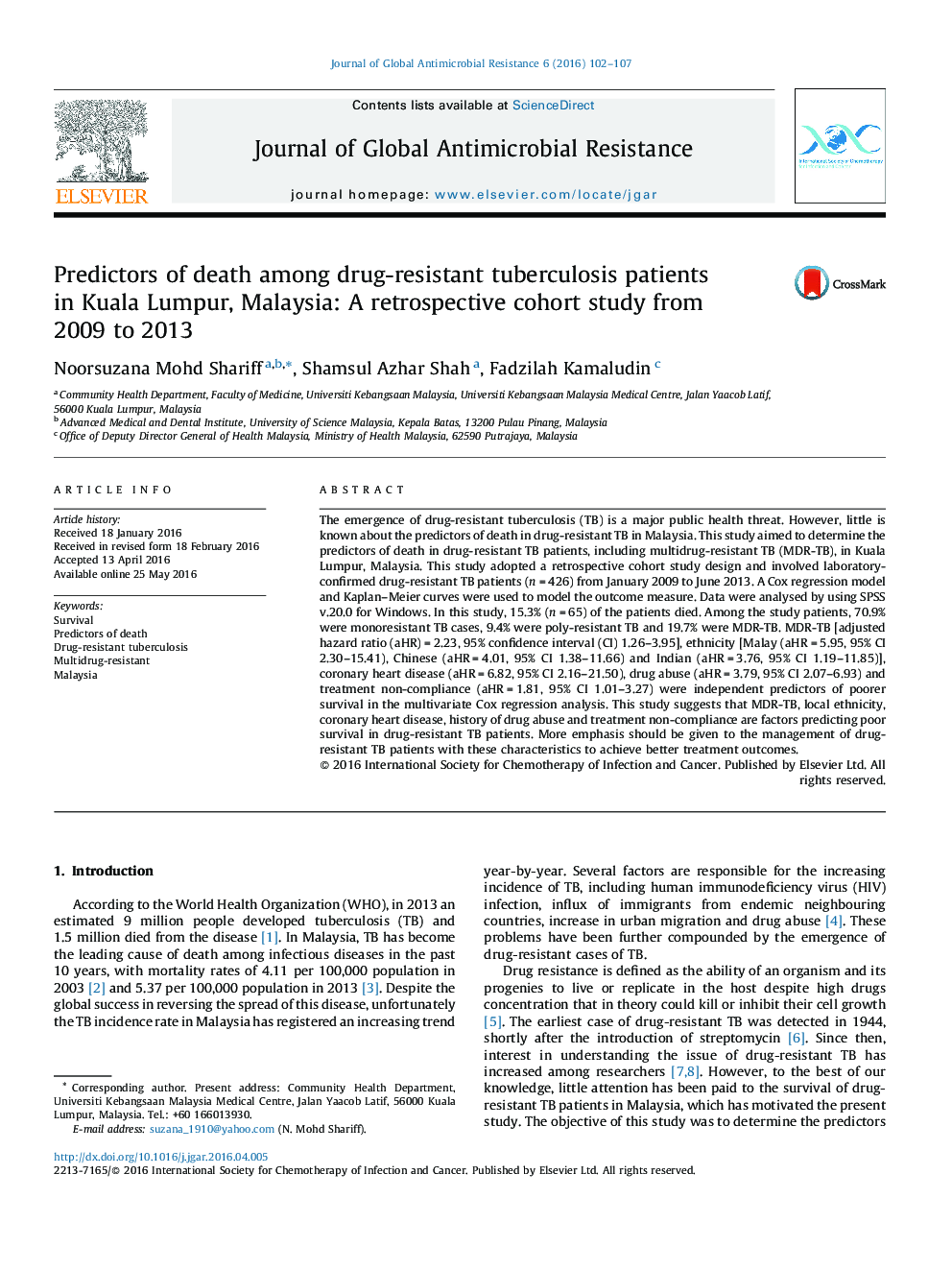| Article ID | Journal | Published Year | Pages | File Type |
|---|---|---|---|---|
| 8746657 | Journal of Global Antimicrobial Resistance | 2016 | 6 Pages |
Abstract
The emergence of drug-resistant tuberculosis (TB) is a major public health threat. However, little is known about the predictors of death in drug-resistant TB in Malaysia. This study aimed to determine the predictors of death in drug-resistant TB patients, including multidrug-resistant TB (MDR-TB), in Kuala Lumpur, Malaysia. This study adopted a retrospective cohort study design and involved laboratory-confirmed drug-resistant TB patients (n = 426) from January 2009 to June 2013. A Cox regression model and Kaplan-Meier curves were used to model the outcome measure. Data were analysed by using SPSS v.20.0 for Windows. In this study, 15.3% (n = 65) of the patients died. Among the study patients, 70.9% were monoresistant TB cases, 9.4% were poly-resistant TB and 19.7% were MDR-TB. MDR-TB [adjusted hazard ratio (aHR) = 2.23, 95% confidence interval (CI) 1.26-3.95], ethnicity [Malay (aHR = 5.95, 95% CI 2.30-15.41), Chinese (aHR = 4.01, 95% CI 1.38-11.66) and Indian (aHR = 3.76, 95% CI 1.19-11.85)], coronary heart disease (aHR = 6.82, 95% CI 2.16-21.50), drug abuse (aHR = 3.79, 95% CI 2.07-6.93) and treatment non-compliance (aHR = 1.81, 95% CI 1.01-3.27) were independent predictors of poorer survival in the multivariate Cox regression analysis. This study suggests that MDR-TB, local ethnicity, coronary heart disease, history of drug abuse and treatment non-compliance are factors predicting poor survival in drug-resistant TB patients. More emphasis should be given to the management of drug-resistant TB patients with these characteristics to achieve better treatment outcomes.
Related Topics
Life Sciences
Immunology and Microbiology
Applied Microbiology and Biotechnology
Authors
Noorsuzana Mohd Shariff, Shamsul Azhar Shah, Fadzilah Kamaludin,
